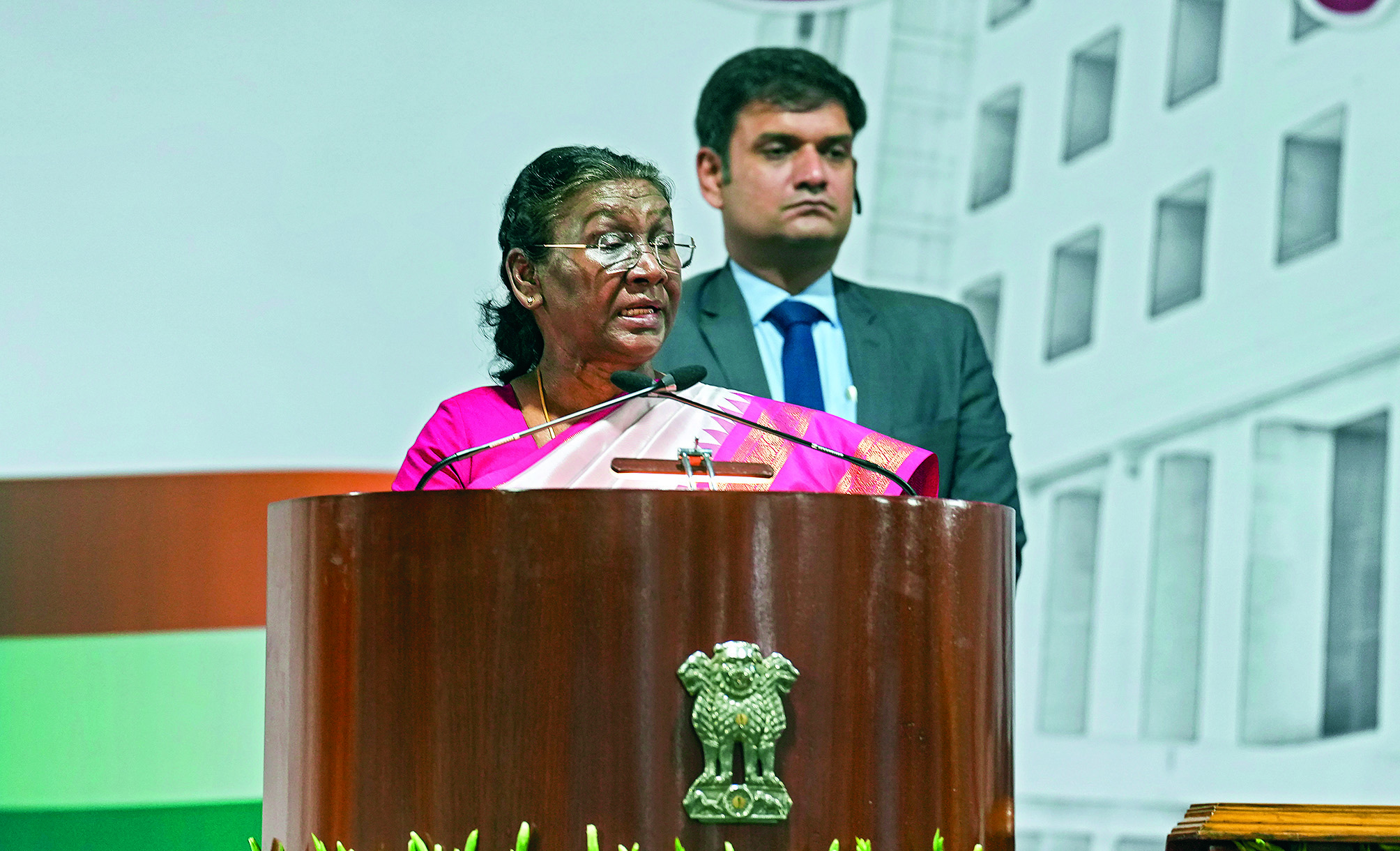Prez Murmu breaks tradition for better connectivity

New Delhi: President Draupadi Murmu is poised to make history by undertaking a regular train journey from Badampahar Station in Odisha on November 21.
This marks a significant shift as President Murmu chooses a general AC coach over the customary Presidential Special train.
During her journey, President Murmu is set to flag off three new trains at Badampahar Railway Station. She will travel by train to Rairangpur, covering a distance of 32 km.
The introduction of new express trains connecting Badampahar and Kolkata is expected to enhance connectivity for residents of Odisha’s tribal areas to Kolkata and also for those who choose to halt in Kolkata enroute to Mumbai.
The President’s decision to personally experience this improved connectivity by travelling in the AC-1 coach of the Badampahar-Kolkata Express is a departure from the tradition of Presidents exclusively using Presidential Special trains.
President Murmu’s two-day Odisha tour is scheduled from November 20 to 22 and includes various events. She will attend the Literary Festival of All India Santali Writers’ Association as the chief guest in Baripada on November 20.
On November 21, President Murmu will grace the Annual Convocation of VSSUT, Burla, at around 4.10 pm. The tour will conclude with the President attending the RISE function of Brahma Kumaris at 11.05 am on November 22 before departing for Delhi.
This move mirrors evolving trends in presidential travel, reminiscent of former President Ram Nath Kovind’s special train journey from Delhi to Kanpur in June 2021.
Former President APJ Abdul Kalam also chose the Delhi-Dehradun Special train for his travels.
President Murmu’s native place, Rairangpur, and her in-law’s residence in Badampahar are both in the Mayurbhanj district of Odisha.
The decision to introduce new trains aligns with the long-pending demand of the local population, as stated by Rail Minister Ashwini Vaishnaw.
These trains are expected to fulfil local aspirations, boost the economy, aid in the development of tribal areas and provide additional connectivity to aspirational districts.
The newly introduced trains include the Shalimar (Kolkata)-Badampahar-Shalimar (Kolkata) Weekly Express, Badampahar-Rourkela-Badampahar Weekly Express, Rourkela-Tatanagar-Rourkela (6 days a week), and Tatanagar-Badampahar-Tatanagar (6 days a week).
This significant move by President Murmu underscores the commitment to enhancing connectivity, fostering development, and embracing the changing dynamics of presidential travel in India.
Shalimar (Kolkata) — Badampahar-Shalimar (Kolkata) Weekly Express will leave Shalimar at 11.05 pm every Saturday and reach Badampahar at 5.40 am the next day. While returning, Badampahar-Shalimar Express will leave Badampahar at 9.30 pm every Sunday and will arrive at Shalimar at 5 am the next day.
The train will stop at Santragachi, Kharagpur, Jhargram, Ghatsila, Asanboni, Tatanagar, Bahalda Road, Aunlajori and Rairangpur.
Badampahar-Rourkeka-Badampahar Weekly Express will leave Badampahar at 06.10am every Sunday and will reach Rourkela at 11.40 am. While returning, the Rourkela- Badampahar Express will leave Rourkela at 2.20 pm every Sunday and will arrive at Badampahar at 7.25 pm.
The train will stop at Rairangpur, Aunlajori, Bahalda Road, Tatanagar, Sini, Rajkharswan, Chakradharpur, Goilkera and Manoharpur.
Rourkela-Tatanagar-Rourkela (6 days a week) train will leave Rourkela at 4.50 am daily except Sundays and will reach Tatanagar at 09.15 am. In its return journey, it will leave Tatanagar at 3.25 pm daily except Sundays and will arrive at Rourkela at 7.35 pm.
The train will stop at Bisra, Manoharpur, Chakradharpur, Sini and Adityapur.
Tatanagar-Badampahar-Tatanagar (6 days a week) train will leave Tatanagar at 9.55 am daily except Sundays and will reach Badampahar at 12.15 pm. In the return direction, the train will leave Badampahar at 12.45 pm except on Sundays and will arrive at Tatanagar at 3.20 pm.
The train will stop at Haludpukur, Aunlajori, Rairangpur, Kuldiha and Chhanva, the ECoR said in an official release.



